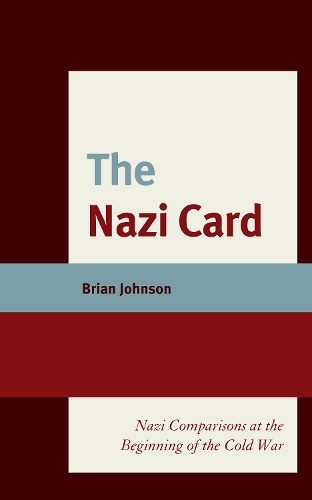
The Nazi Card: Nazi Comparisons at the Beginning of the Cold War
(Hardback)
Publishing Details
The Nazi Card: Nazi Comparisons at the Beginning of the Cold War
By (Author) Brian Johnson
Bloomsbury Publishing PLC
Lexington Books
25th January 2017
United States
Classifications
Professional and Scholarly
Non Fiction
Military history
Cold wars and proxy conflicts
320.5330945
Physical Properties
Hardback
230
Width 157mm, Height 239mm, Spine 23mm
522g
Description
The Cold War began almost immediately after the end of World War II and the defeat of the Nazis in Europe. As images of the Nazis atrocities became part of American cultures common store, the evil of their old enemy, beyond the Nazis as a wartime opponent, became increasingly important. As America tried to describe the danger represented by the spread of Communism, it fell back on descriptions of Nazism to make the threat plain through comparison. At the heart of the tensions of that era lay the inconsistency of using one kind of evil to describe another. The book addresses this tension in regards to McCarthyism, campaigns to educate the public about Communism, attempts to raise support for wars in Asia, and the rhetoric of civil rights. Each of these political arenas is examined through their use of Nazi analogies in popular, political, and literary culture. The Nazi Card is an invaluable look at the way comparisons to Nazis are used in American culture, the history of those comparisons, and the repercussions of establishing a political definition of evil.
Author Bio
Brian Johnson teaches American literature and popular culture at Cuyahoga Community College.
